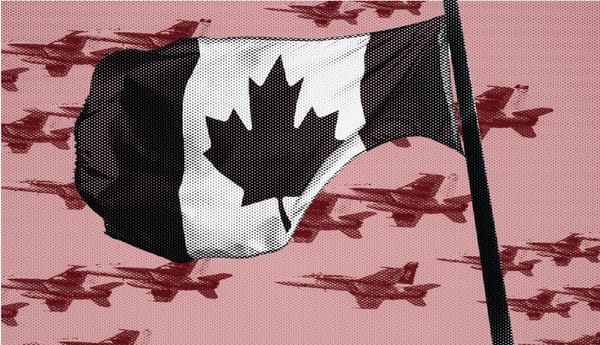Working life across Canada is gradually grinding to a halt, as cafes, restaurants, bars, gyms, rec centres, and businesses of all variety shut down due to the coronavirus pandemic. Some people will be able to continue working from home, but many Canadians are now facing the prospect of going without work for a lengthy and indeterminate period of time.
In a country with a well-developed welfare state, this would not be such a problem. The system would be equipped to handle these disruptions. Unfortunately, Canada does not have a well-developed welfare state. We are one of the only industrialized countries without a national paid sick leave policy and our employment insurance program leaves many people behind, including the vast majority of those in low-income or precarious gig jobs.
The Federal government has indicated they plan on announcing some form of fiscal response to the crisis in the coming days, though they have given no clues as to what that will include. In developing their response, Canadians governments should look to policies recently implemented by the Nordic countries.
Norway
The Norwegian state is implementing a broad series of supports for workers, in addition to a relief package for business.
Temporarily laid off workers will receive their full pay for 20 days, while self-employers workers and freelancers will get 80 per cent of their income (averaged over the past three years) up to a maximum of NOK 600,000 (CAD $81,766). Payments are set to begin immediately, and requirements around job searching have been dropped.
The Norwegian government is also supporting parents who must stay home to care for children. Norway already provides a cash-for-care benefit to parents with children between the ages of one and two who are not in public childcare (another critical welfare state program Canada lacks). This benefit is being extended for parents who have already used up their allowance during the emergency period.
Sweden
Sweden has launched a relief package worth more than 300 billion Swedish crowns (CAD $43 billion). The government will now pay for the first two weeks of worker sick leave rather than employers and partially cover the salaries of workers facing temporary layoffs.
Workers in Sweden are alredy entitled to two weeks of sick pay up to 80 per cent of their salary to a maximum of 791 SEK (CAD $113) per day. After this two week period, the Social Insurance Agency (Försäkringskassan) will cover up to 80 per cent of your salary for another 12 months.
Importantly, the minority of people who do not receive sick pay through their work are also eligible for benefits from the Försäkringskassan. This is a marked difference with Canada’s system of sickness benefits, which does not cover many part-time employees, freelancers, and gig workers.
Denmark
The Danish government is paying workers 75 per cent of their salary (up to CAD $4,815 ) if they are unable to work due to the coronavirus pandemic, while employers pay the remaining 25 per cent for the next three months. In exchange, workers will be asked to use five days of their paid vacation time (they receive 2.08 days for each month of work, or 25 days per year).
Danes already enjoy a generous sick leave benefit relative to Canadians, with employers required to pay sick workers at full salary for a minimum of 30 days. After this period ends, municipalities will provide another 30 days of paid sick leave up to a maximum of DKK 4,300 (CAD $900) per week.
Lessons for Canada
Canada’s response to the coronavirus pandemic should mirror that of the Nordic countries, whose strong welfare states will make the coming months significantly less challenging for their citizens.
Workers should be provided with generous sickness benefits for an extended period of time, ideally up to 12 months. These benefits should be funded in large part by the state, both to limit the burden on employers and to ensure consistent and universal implementation. Workers should be eligible regardless of their status as full-time employees, part-time employees, freelancers, or “independent contractors”. Workers who are unable to work due to sickness should receive benefits, period. These benefits should be implemented now, and made permanent.
As a temporary measure, Canada should follow the lead of Norway and provide benefits for temporarily laid off workers or adopt the Swedish model and cover salaries of temporarily redundant workers to prevent layoffs in the first place. We should plan on maintaining these benefits for at least the next two months.
During this crisis, Canadians are in a more difficult position than workers in the Nordics because of our anemic welfare state. But it is not too late for us to adopt the policies they have so successfully implemented and provide security for all workers.






